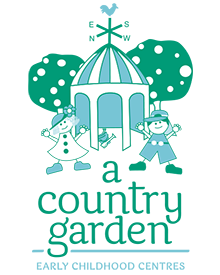If you’re a parent in Queensland with young children approaching the age of four, you’re likely starting to review options for free kindergarten near
you.
You have some choices in front of you. In the spirit of ensuring every child gets a fair chance at a solid early education, the Queensland government has made significant investments under the banner of free kindergarten. The powerful initiative comes as an invaluable relief to countless families across Queensland, making high-quality early education much more accessible to countless families across the state.
In this article, our staff at A Country Garden are ready to answer all your questions related to free kindy in QLD, unpacking the four most important things every parent needs to know.
1. What is the Queensland Kindergarten Funding Scheme?
To implement free kindergarten education in Queensland, the state government's funding scheme is an initiative providing tuition fee subsidies for eligible children in the lead-up to Prep starting 1 January
2024. The scheme covers children the year before they're eligible to begin Prep (generally around four years old).
With the introduction of this scheme, many kindergartens in Queensland are able to offer free kindy services. Even more exciting is that parents can now find a free kindergarten near them with greater ease.
The scheme takes into account factors such as family income, geographical location, and individual circumstances, designed to ensure that every child, regardless of their background, has the opportunity to access quality early education.
2. How Does the Funding Scheme Provide Free Kindergarten for Eligible Families?
Eligible service providers receive funding to support the costs of delivering kindergarten programs through multiple subsidies, including:
Base Subsidy: Allocated for each eligible child enrolled, this subsidy aids services in offering enhanced benefits, including extra pay for early childhood teachers and up to two diploma educators involved in the kindergarten program.
Gap Fee/Free Kindy Subsidy: Covers the parental fee for each eligible child in an approved kindergarten program, ensuring 15 hours per week for 40 weeks, totalling 600 hours annually.
Service Location Subsidy: Granted to service providers in regional and remote areas for each eligible child.
Kindy Uplift: Offered to eligible service providers as determined by the Department of Education, this subsidy focuses on addressing children's learning and development needs through proven initiatives.
Inclusion Subsidy: Supports the inclusion of all eligible children, regardless of their diverse backgrounds or additional needs.
Per Capita Subsidy: Available to service providers that have not participated in the free kindy program.
Long day care services or sessional kindergartens must be recognised as approved kindergarten program providers to be eligible for Queensland kindergarten funding.
3. What are the Eligibility Requirements to Receive Kindergarten Funding?
As mentioned above, under the scheme, kindergarten will be free for all eligible Queensland families, covering 15 hours per week for 40 weeks a year. To be eligible and receive the subsidy, children must be at least four years old by June 30, the year they start kindergarten. Service providers can only claim funding for each enrolled, eligible child.
Parents or carers must provide proof of the child's age, like a birth certificate, which the service needs to keep a record of. What’s more, funding applies to only one approved kindergarten program at a time for each child. Services must ensure a child isn't subsidised in two programs simultaneously. If a child is enrolled in multiple services, parents or carers must nominate which service should receive the funding.
4. What are the Major Benefits of Free Kindy in QLD?
There are a host of major benefits of this scheme that every parent in Queensland should consider, including:
Affordability: The Queensland kindergarten funding scheme eases the financial burden on parents, making early childhood education more accessible without impacting the family budget amid the rising cost of living.
Quality Education: Ensures that children receive a high-quality education from trained educators, fostering cognitive and social development, and laying a strong foundation for future learning.
Equal Opportunities: Provides all children, regardless of their socio-economic background, with equal access to kindergarten, thus ensuring that financial constraints don't impede early education.
Smooth Transition to Primary School: Prepares children for the structure and routine of primary school, focusing on their emotional, social, physical, and academic readiness.
Learn More on Kindergarten Funding From a Leading School
Near You
Give your child a head start with A Country Garden – a Queensland Government Approved Kindergarten Program in Toowoomba.
Embracing Montessori methods within Australia's curriculum guidelines, we provide a stimulating and nurturing environment for 4 to 5-year-olds from all walks of life. To learn more about what we have to offer, contact us at 07 4635 5448 or leave an online enquiry to learn more about our innovative kindergarten program.
Enrol now for a transformative early learning experience!







